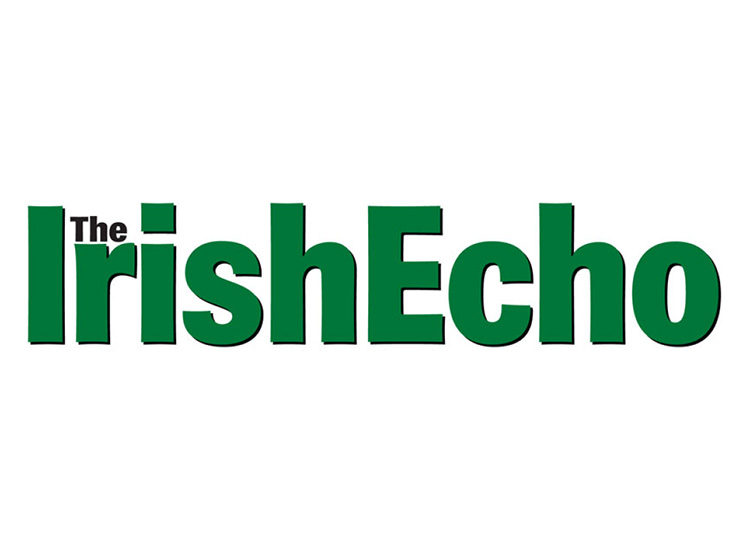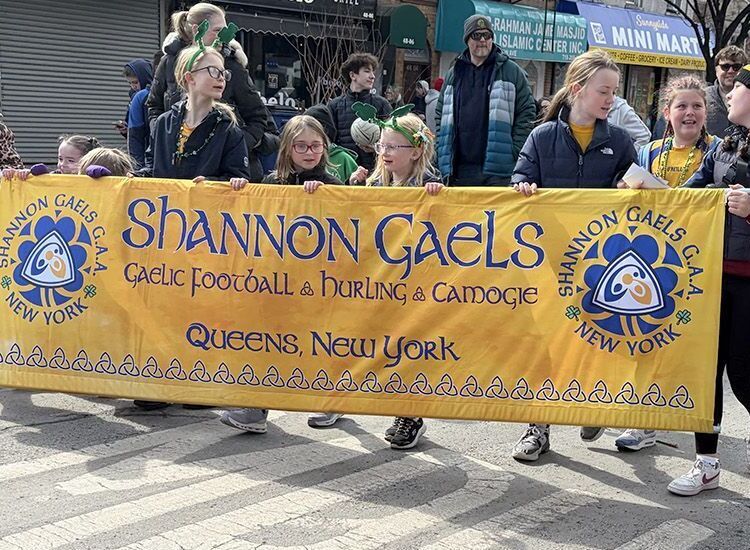This was a headline last week in the London-published Daily Telegraph: “Brexit latest news: Angela Merkel throws Theresa May a lifeline as she insists extension must be 'as short as possible.”
Presumably is was a lifeline long enough for the short as possible bit.
There is one heck of a dramatic cast involved in this whole Brexit business. Some, from an Irish perspective, can be viewed as friendly, some decidedly not.
Angela Merkel seems to have Ireland’s back. Emmanuel Macron, more mercurial than Merkel, might not be as safe a bet. Then there are the leaders of all the other EU states and the dramatis personae prowling the city where Shakespeare made his name.
They are delivering tragedy, comedy and farce at a daily rate.
There are clear dangers for Ireland, all of the island, inherent in Brexit. These pages have covered many of those dangers in recent months and weeks.
But there is another danger now seemingly afoot and that is a decided animus towards Ireland, specifically the Republic, its government, and its loyalty to the European Union.
As RTE and other Irish news outlets reported, Ireland's ambassador to the UK has accused a British political magazine of publishing snide and hostile articles about Ireland.
Reported RTE: “In an unusual step Adrian O'Neill has written an open letter to the editor of The Spectator magazine.
“He said that criticism of the Irish Government's approach to Brexit by the magazine had ‘lapsed into an anti-Irish sentiment which we all hoped had been consigned to the past.’
“Mr. O'Neill cited the example of a recent article about Ireland joining the Organisation Internationale de la Francophonie.
“Described by some as the French Commonwealth, its members co-operate in the fields of culture, science, economics and justice.
“Ireland is one of 17 EU Member States that are either members or observers of the organization. A piece in The Spectator by Robert Hardman suggested that Ireland should instead have rejoined the (British) Commonwealth.
“He then added that: ‘Only the mean-spirited would suggest that little Leo will do anything to suck up to the top gang in the EU playground…’
“The Spectator is a political and arts magazine whose editorial outlook is generally sympathetic to the Conservative Party. Former British Foreign Secretary Boris Johnson was previously the magazine's editor for more than five years.’”
The Irish Times reported Ambassador O’Neill (he served at the Irish embassy in Washington a number of years ago) as citing the “prevailing tone and tenor” of articles about Ireland and Brexit being “with the occasional exception” anti-Irish.
The Times drew more from the Spectator piece penned by Mr. Hardman stating that “He commented on the irony of the fact that Ireland declared itself a Republic 70 years ago and then left what was then the British Commonwealth.”
“Hardman wrote: ‘I was reminded of that moment this week as the budding bromance between the Irish Prime Minister Leo Varadkar and France’s President Emmanuel Macron unfolded. Relations have never been better, Mr Varadkar cooed to nods from M. Macron. As well he might. For Varadkar has just returned his nation to the Commonwealth fold — by signing up to the French Commonwealth.
“To the astonishment of diplomats all over the world, Ireland is now a proud junior member of the Organisation Internationale de la Francophonie, the Paris–based organisation for those bits of the world once ruled by the French. The official reason, according to Varadkar’s government, is that Ireland wants to increase its ‘global footprint’ and because Samuel Beckett wrote the odd play in French.
“‘Only a cynic would suggest that this is a calculated two fingers to Brexit Britain. Only the mean-spirited would suggest that little Leo will do anything to suck up to the top gang in the EU playground. He is going to need to, of course, if he wants to hang on to his nation’s cosy corporate tax deals once the Brits are no longer around to help fight Ireland’s corner against big EU tax reforms.
“‘Britain stood ready with a £3.2 billion emergency loan when Ireland faced bankruptcy after the financial crash. Indeed, we have agreed to go to the back of the queue of creditors, behind the IMF, when it comes to repayment. But Varadkar is banking on new chums to help him out in future.’”
The Times report continued: “Mr. O’Neill countered by stating that Hardman’s article was a particularly “egregious example” of The Spectator’s anti-Irish bias.
“He pointed out that 17 EU member states are either members or observers of the Organisation Internationale de la Francophonie, but ‘only Ireland’s affiliation incurs his scorn.’
“He (O’Neill) wrote: ‘Brexit has undeniably placed some pressure on British-Irish relations. Nevertheless, most British people I meet understand the rationale underlying the Irish Government approach to Brexit, a policy which enjoys cross-party support in our parliament and across public opinion in Ireland.’”
The Times report noted that the full text of the letter was released by the Irish Embassy in London after the Spectator omitted the final two sentences of it from its print edition. The letter was run in full on the Spectator website.
If it was only a matter of words it would be a matter of responding when absolutely necessary, and turning the other cheek as much as possible.
But there are strong indications of a readiness on the part of hard-nosed Brexiteers to blame Ireland for the Brexit mess, particularly with regard to Dublin’s rightful insistence on adhering to the Good Friday Agreement and avoiding a hard border.
That would mean the UK remaining in a European Custom Union, a scenario utterly anathema to the Brexiteers, but one that would preserve Ireland from potentially catastrophic trade tariffs imposed by London.
Ambassador O’Neill will have to keep his pen ready and close.









